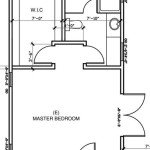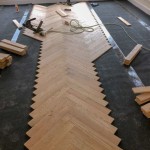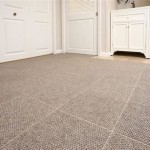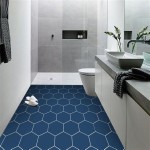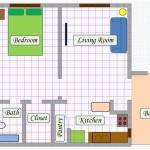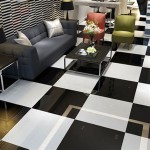Hickory Wood Flooring: The Timeless Appeal of Wide Plank Design
Hickory wood flooring, particularly in its wide plank iteration, represents a significant investment in the aesthetic and functional value of a residential or commercial space. Characterized by its exceptional durability and distinctive grain patterns, hickory wide plank flooring offers a unique blend of rustic charm and contemporary sophistication. This article explores the characteristics, benefits, installation considerations, and maintenance requirements associated with hickory wide plank flooring.
Hickory is a hardwood species renowned for its strength and shock resistance. Its Janka hardness rating typically falls around 1820, significantly higher than many other popular flooring options such as oak or maple. This inherent hardness makes hickory resistant to scratches, dents, and everyday wear and tear, rendering it ideal for high-traffic areas and homes with pets or children. The wood's density contributes to its stability, reducing the likelihood of warping or cupping over time, provided it's properly acclimated and maintained.
Wide plank flooring, generally defined as planks exceeding 5 inches in width, creates a more expansive and less cluttered appearance than traditional narrow strip flooring. This design choice can visually enlarge a room, making it feel more open and airy. The wider boards also showcase more of the wood's natural character, highlighting the unique grain patterns and color variations inherent in hickory. Wide plank hickory flooring is available in both solid and engineered construction, each offering distinct advantages depending on the specific application.
Solid hickory wide plank flooring consists of planks milled from a single piece of wood. It's known for its longevity and the potential for refinishing multiple times throughout its lifespan. However, solid wood is more susceptible to changes in moisture levels, which can cause expansion and contraction. Engineered hickory wide plank flooring, on the other hand, comprises multiple layers of wood bonded together, with a top layer of genuine hickory veneer. This construction provides greater dimensional stability, making it a suitable choice for environments with fluctuating humidity levels, such as basements or climates with significant seasonal changes.
Key Advantages of Hickory Wide Plank Flooring
Hickory wide plank flooring offers numerous advantages, contributing to its enduring popularity among homeowners and designers. These benefits encompass durability, aesthetics, and long-term investment value.
Exceptional Durability and Longevity: The inherent hardness of hickory provides exceptional resistance to scratches, dents, and wear, making it a suitable choice for high-traffic areas and active households. Properly installed and maintained hickory flooring can last for decades, providing a long-term flooring solution that retains its beauty and functionality. Solid hickory planks, in particular, can be refinished multiple times, extending their lifespan even further. This durability translates to a lower total cost of ownership over the long run, as replacement or frequent repairs become less necessary. The resilience of hickory makes it a practical choice for families with children or pets, where the flooring is subjected to daily use and potential abuse.
Unique Aesthetic Appeal and Versatility: Hickory is characterized by its dramatic grain patterns and significant color variations, ranging from creamy white to reddish-brown and dark brown. This natural variation creates a visually dynamic and engaging floor that adds character and warmth to any space. Wide planks further accentuate these natural features, showcasing the wood's unique beauty. Hickory's versatility allows it to complement a wide range of interior design styles, from rustic and traditional to modern and contemporary. It pairs well with various furniture styles, color palettes, and architectural elements. The ability to stain hickory allows for customization, enabling homeowners to achieve a specific desired look. Whether opting for a light, natural finish or a dark, rich stain, hickory provides a versatile canvas for expressing individual design preferences.
Increased Home Value and Investment Potential: Investing in high-quality hardwood flooring, such as hickory wide plank, can significantly increase the value of a home. Hardwood floors are consistently ranked among the most desirable features for potential buyers. The durability and aesthetic appeal of hickory contribute to its perceived value. The long lifespan and minimal maintenance requirements of hickory further enhance its attractiveness as an investment. Wide plank flooring, in particular, is often seen as a premium feature, adding a touch of luxury and sophistication to the home. When properly installed and maintained, hickory wide plank flooring can be a significant selling point when the time comes to sell the property.
Installation Considerations for Hickory Wide Plank Flooring
Proper installation is crucial to ensure the longevity and performance of hickory wide plank flooring. Whether opting for solid or engineered planks, adherence to best practices and manufacturer guidelines is essential. Professional installation is highly recommended, especially for solid hickory, given the complexities involved in acclimation and fastening.
Acclimation: Acclimation is the process of allowing the wood flooring to adjust to the environmental conditions of the installation site. This is particularly important for solid hickory, as it is more susceptible to expansion and contraction due to changes in humidity and temperature. The flooring should be stored in the room where it will be installed for several days, or even weeks, prior to installation. This allows the wood to reach equilibrium with the surrounding environment, minimizing the risk of warping or gapping after installation. The specific acclimation period will vary depending on the local climate and the moisture content of the wood, but it's a critical step that should not be overlooked. Following the manufacturer's recommended acclimation guidelines is paramount for a successful installation.
Subfloor Preparation: A stable and level subfloor is essential for a successful flooring installation. The subfloor should be thoroughly cleaned, free of debris, and properly leveled to prevent unevenness or squeaking in the finished floor. Any imperfections or irregularities in the subfloor should be addressed prior to installation. For concrete subfloors, moisture testing is necessary to ensure that the moisture content is within acceptable limits. Moisture barriers may be required to prevent moisture migration from the concrete into the wood flooring. For plywood subfloors, ensure that the plywood is of sufficient thickness and properly secured to the floor joists. Any loose or damaged plywood should be replaced before proceeding with the flooring installation. A smooth and level subfloor will provide a solid foundation for the hickory wide plank flooring, ensuring its long-term stability and performance.
Fastening Methods: The method of fastening hickory wide plank flooring will depend on the type of flooring (solid or engineered) and the type of subfloor. Solid hickory is typically nailed or stapled to the subfloor. It's important to use the correct type and size of fasteners, as recommended by the manufacturer. Engineered hickory can be nailed, stapled, glued, or floated. Floating installations involve interlocking the planks without attaching them directly to the subfloor. This method is often used for engineered flooring over concrete subfloors. Glue-down installations provide a more secure and stable bond, but they can be more challenging to remove later. The choice of fastening method should be based on the specific circumstances of the installation and the recommendations of the flooring manufacturer. Proper spacing and alignment of the planks are crucial to ensure a professional and aesthetically pleasing result.
Maintenance and Care of Hickory Wide Plank Flooring
Proper maintenance is essential to preserve the beauty and longevity of hickory wide plank flooring. Regular cleaning and preventative measures can help protect the floor from scratches, dents, and other types of damage. Following the manufacturer's recommendations for cleaning products and maintenance procedures is crucial.
Regular Cleaning: Regular cleaning is essential to remove dirt, dust, and debris that can scratch or dull the finish of the floor. Sweeping or vacuuming the floor regularly is recommended, preferably with a soft-bristled broom or a vacuum cleaner with a felt brush attachment. Avoid using vacuum cleaners with beater bars, as they can scratch the finish. For more thorough cleaning, use a damp mop with a pH-neutral wood floor cleaner. Avoid using excessive water, as it can damage the wood. Wring out the mop thoroughly before applying it to the floor. Never use harsh chemicals, abrasive cleaners, or scouring pads, as they can strip the finish and damage the wood. Regular cleaning will help maintain the floor's shine and prevent the buildup of dirt and grime.
Preventative Measures: Taking preventative measures can help protect the floor from scratches, dents, and other types of damage. Place mats or rugs at entrances to trap dirt and debris before they are tracked onto the floor. Use furniture pads under the legs of furniture to prevent scratches and dents. Avoid wearing shoes with high heels or cleats on the floor, as they can cause dents and scratches. Trim pet nails regularly to prevent scratches from pets. Clean up spills immediately to prevent staining or water damage. Avoid dragging heavy objects across the floor. By taking these preventative measures, you can help protect the floor from damage and extend its lifespan.
Refinishing: Over time, even with proper maintenance, hickory wide plank flooring may show signs of wear and tear. Refinishing can restore the floor to its original beauty and extend its lifespan. Refinishing involves sanding down the old finish and applying a new coat of finish. Solid hickory floors can typically be refinished multiple times, while engineered floors may have a limited number of refinishing cycles, depending on the thickness of the veneer layer. The refinishing process should be performed by a qualified professional with experience in hardwood floor refinishing. The refinishing process can be messy and time-consuming, but it can significantly improve the appearance of the floor and increase its value.

Design Considerations For Buying A Wide Plank Hickory Floor Carlisle Floors

Wide Plank Rustic Hickory Flooring Pre Finished Hardwood

Mayflower 3 4 In Millrun Hickory Solid Hardwood Flooring 25 Wide Ll

Malibu Wide Plank Camino Hickory 3 8 In T X 6 5 W Click Lock Wire Brushed Engineered Hardwood Flooring 23 Sq Ft Case Hdmpcl342ef The Home

Design Considerations For Buying A Wide Plank Hickory Floor Carlisle Floors

Malibu Wide Plank Hickory Rosslyn 20 Mil 9 1 In X 60 Click Lock Waterproof Luxury Vinyl Flooring 461 6 Sq Ft Pallet Hdmucl210rcpl The Home

Wide Plank Character Hickory Floor Vermont Flooring

Natural Hickory Flooring Hull

Hickory Hardwood Flooring Vermont Wide Plank

Hickory Gran Marnier Hardwood Flooring
